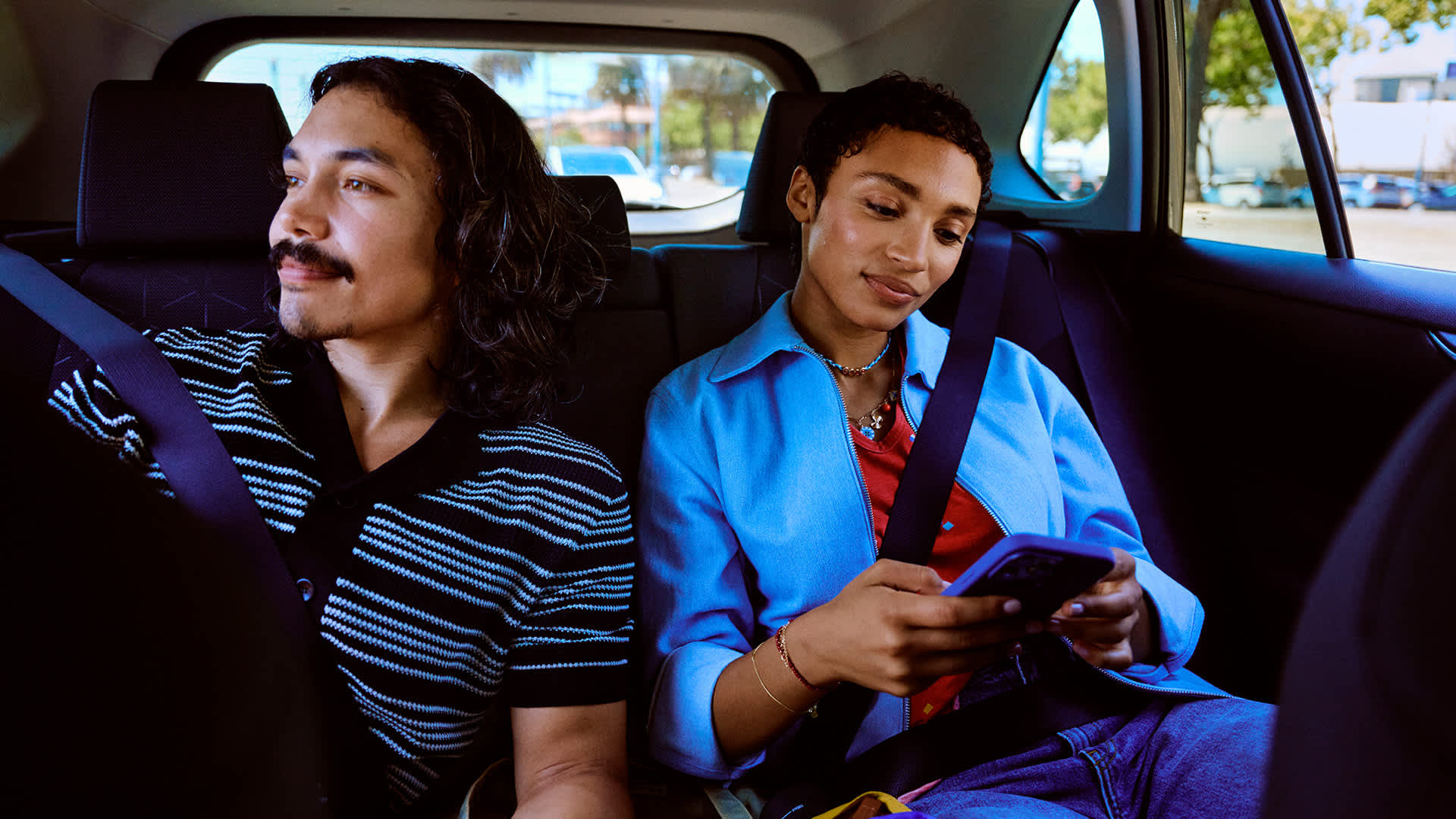
Lyft relies on the marketplace to optimally match supply with demand and determine fares. That’s why most fares total up to something quite specific, like $8.73. However, for roughly 2% of riders, the amount they pay is always a round number, say, $9 flat. Those riders have turned on round up and donate, a feature that rounds up the cost of the ride to the nearest dollar and donates the change to charity. While these donations are individually trivial — ranging from $.01 to $.99 — they’ve accumulated into something quite significant: over $42 million, since 2017.
Over 100 million donations, averaging 38 cents each, became over $42,560,000 sent to charities.
Riders get to select their preferred charity from a group of organizations. Over the past seven years, Lyft riders have donated $5.8 million to non-profits that support civil liberties, $5.5 million to LGBTQ+ rights groups, and nearly $4 million to organizations focused on education.
“We are heartened by the fact that since 2017, the Lyft community has consistently supported civil liberties,” says Danielle Silber, director of Corporate Engagement for the American Civil Liberties Union (ACLU). “And we’re inspired that the financial support is reflective of hundreds of thousands of people choosing to defend our fundamental constitutional rights that are under threat.”
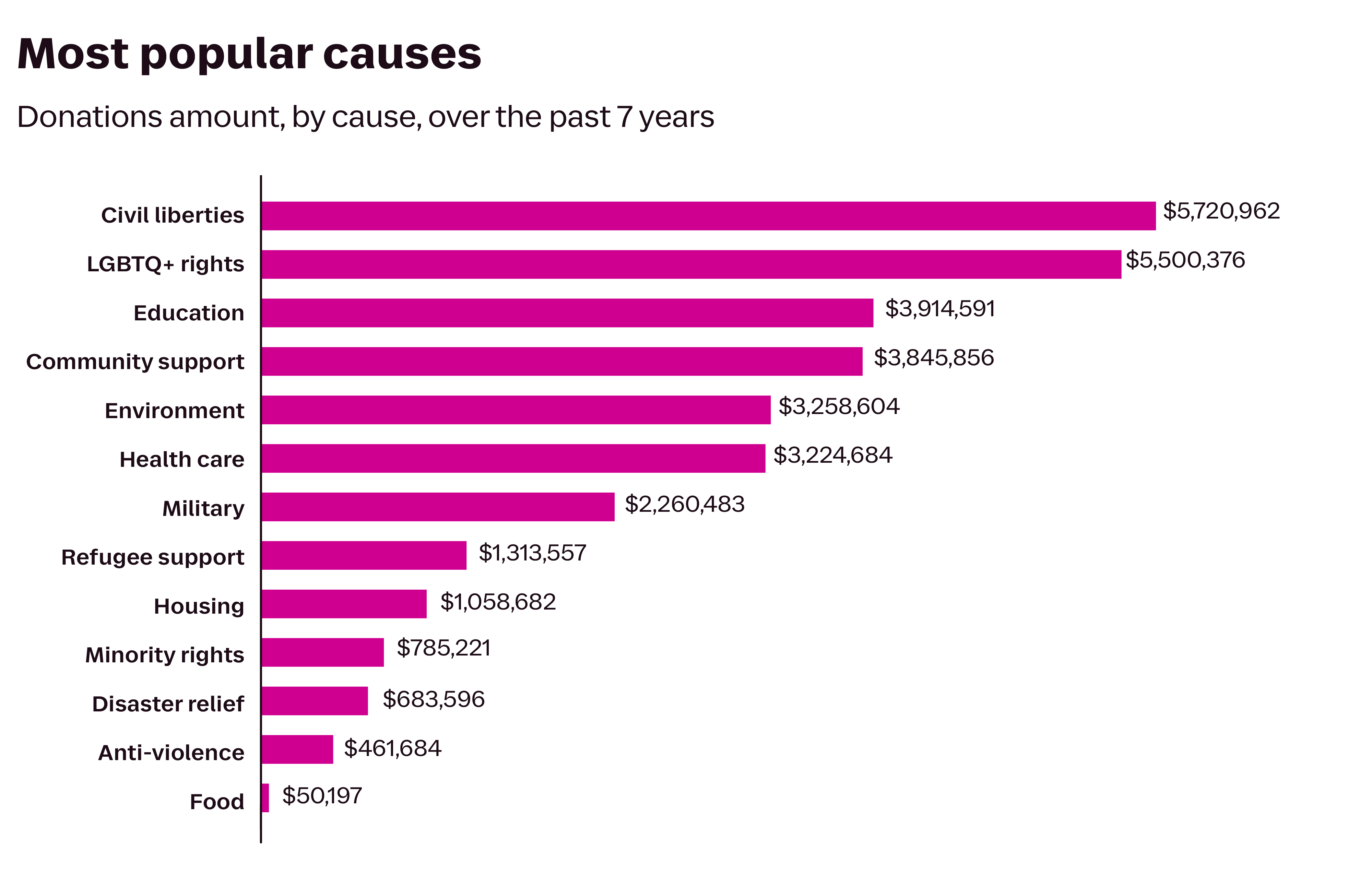
According to Lyft data, the weekend is when riders are feeling most generous. Specifically, riders are 50% more likely to turn on the round up and donate feature on Fridays and Saturdays at dinnertime.
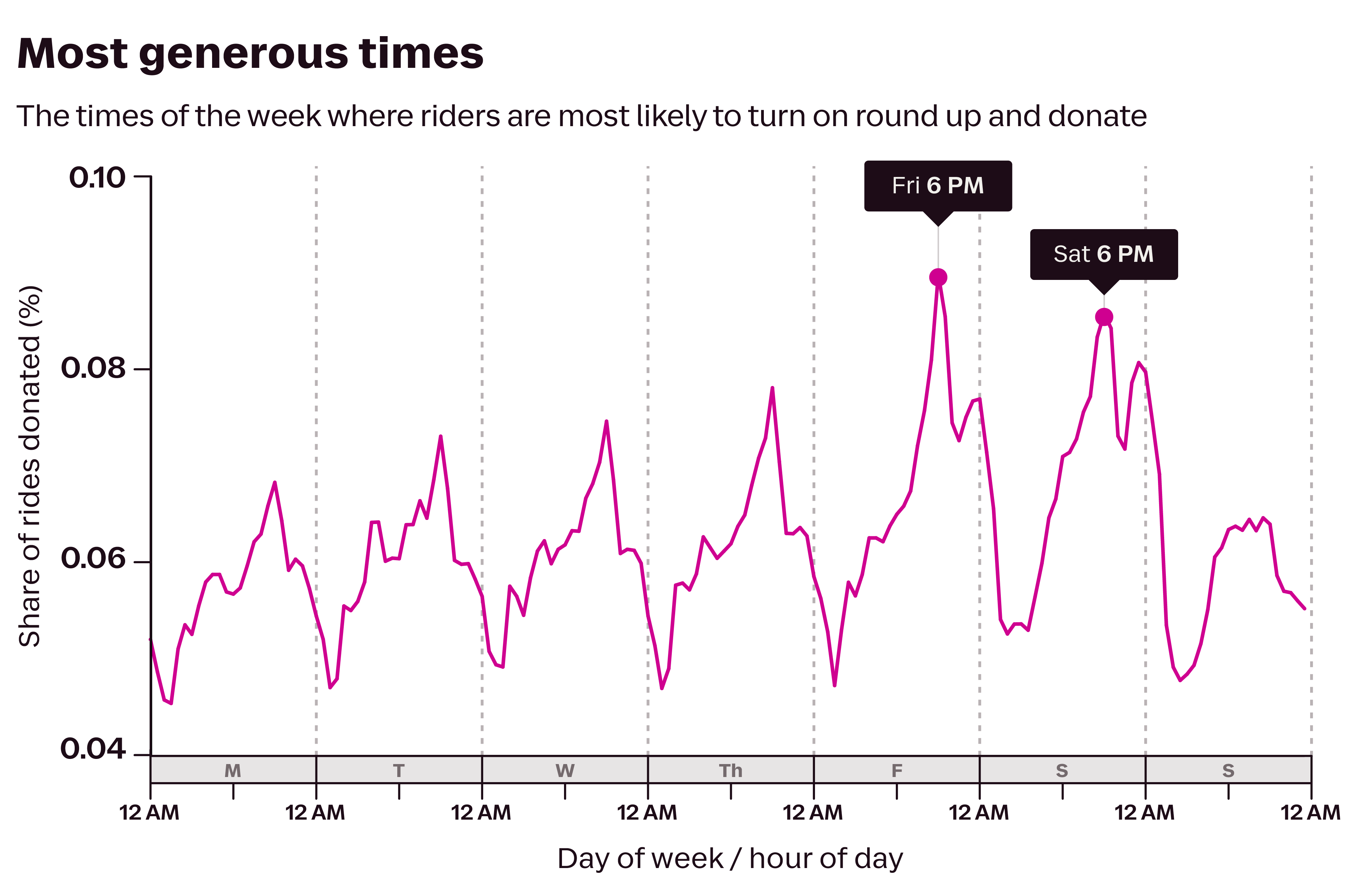
Where riders are going to/from matters too. Round up and donate is twice as likely to be turned on during trips originating from or ending at museums, performances, and galleries — suggesting those spaces inspire people to be more generous. Other destinations that tend to see more riders turning into donors include pet stores, funeral homes and cemeteries, and civic destinations, like city halls.
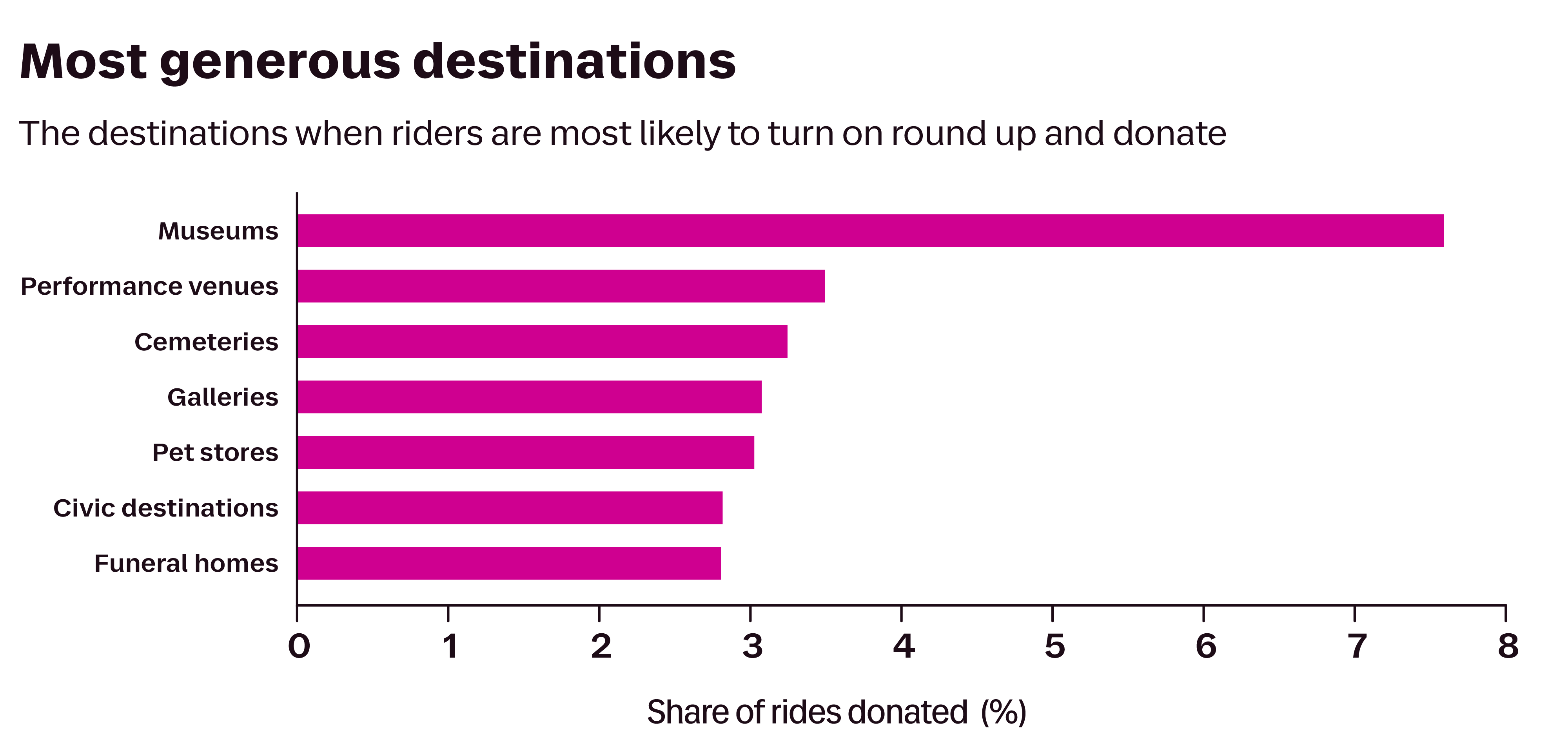
Donating riders hail from across the U.S. and Canada, where Lyft operates. But certain cities tend to be more philanthropic than others. In the small towns of Oaklawn-Sunview, Kansas; Cold Springs, Nevada; and Corona de Tucson, New Mexico, 7.5% of all rides are donated — nearly 4x the national average. With this in mind, Lyft recently added a new partner, the National FFA Organization (previously known as Future Farmers of America), to its round up and donate program to broaden its impact on agricultural communities.
Diving deeper into the data, folks in Oaklawn-Sunview (and other small towns like it in Kansas) are more likely than major city dwellers to donate to organizations that help the environment: For instance, they are twice as likely to donate to Conservation International and 50% more likely to contribute to the Environmental Defense Fund. And in Cold Springs, Nevada, it takes just one individual to make a city stand out: One generous rider is responsible for 95% of the donations.
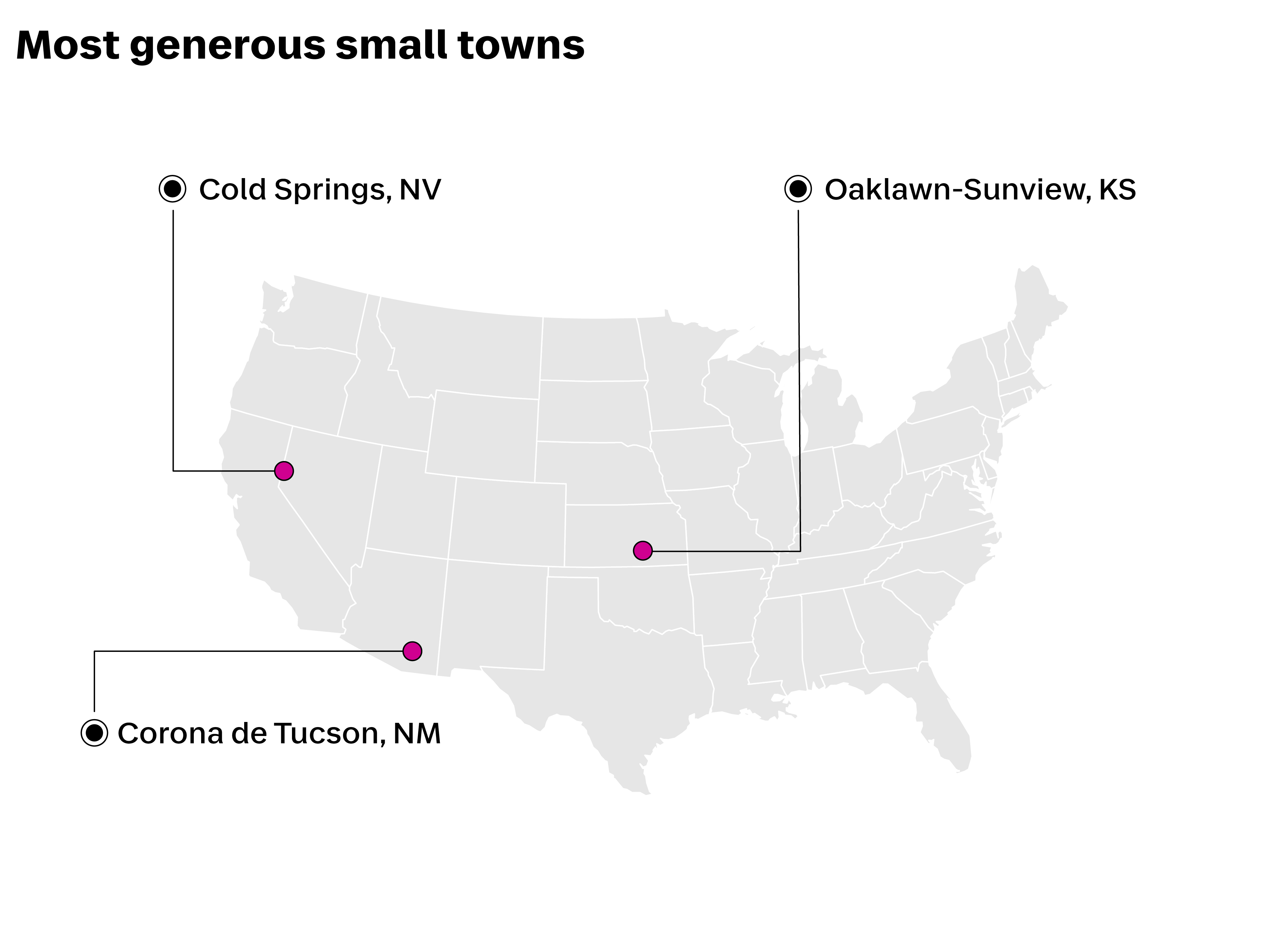
Leading the pack in generosity, however, are San Francisco, Seattle, and Portland, Oregon, where every 30th rider contributes to a charity. Our data shows that Portland riders overindex on donations to the ACLU: They are 45% more likely than riders in other cities to donate to them. San Francisco is where Lyft’s most generous rider, Marshall Vickness, lived when he joined the program in 2017. Since then, Vickness has donated over $2,000 to environmental and LGBTQ+ issues — just by taking daily Lyft rides to work.
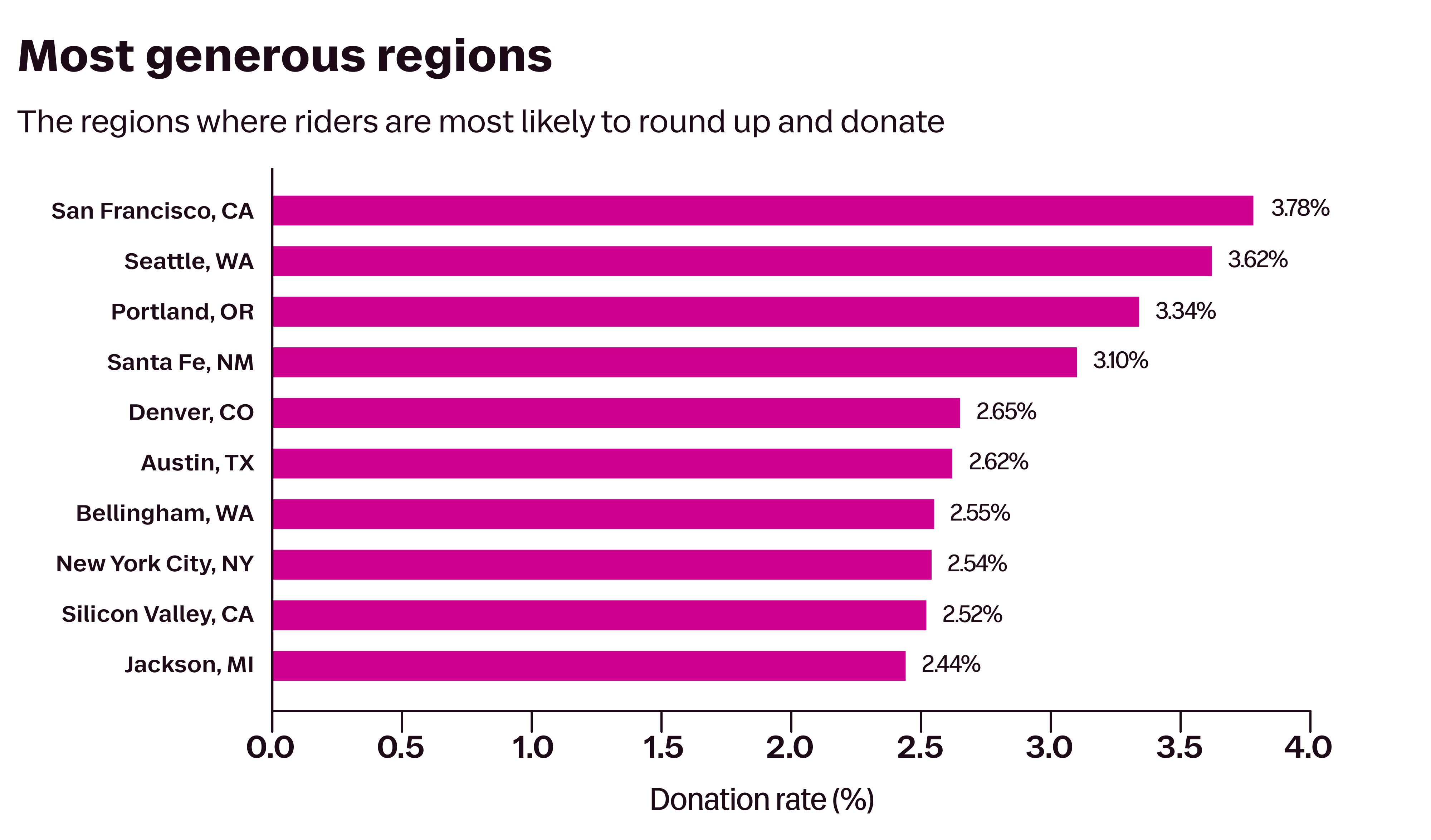
In Vickness’s words, “It’s daunting, all the suffering and injustice in the world, but every little thing matters.” Lyft riders — whose spare change has generated millions over the last eight years — are proving the maxim true.